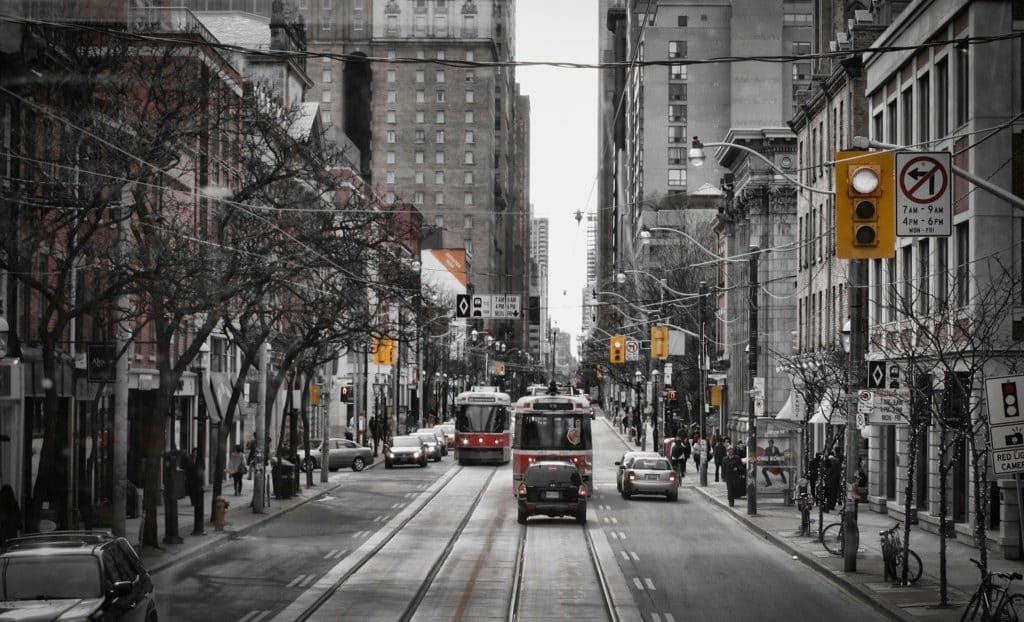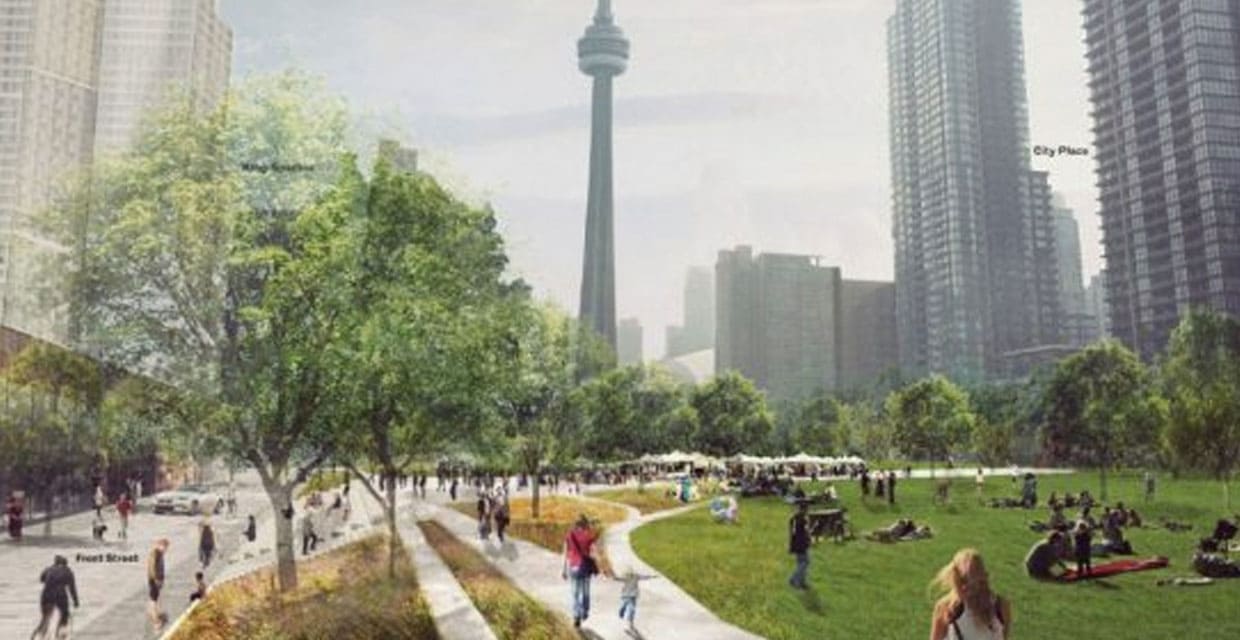
Next week, Toronto’s executive committee will vote on the proposed King St. Pilot, the first plan to enact a transit-first mentality to city planning.
The King. St. Pilot is a direct response to slow transit service and increased congestion along the downtown corridor. “King Street is not currently working well for transit,” a report prepared by Toronto’s General Manager said. “Streetcar service can be slow, unreliable, and erratic, with unpredictable travel times, especially during rush hours, but also during some late evening and weekend times. People end up having to plan for their slowest trip.”
With more than 65,000 daily TTC riders compared to the 20,000 vehicle users along King St., re-branding this corridor as transit-first makes a lot of sense.The pilot will cover six kilometres of King St., from Jarvis to Bathurst. The corridor would funnel drivers to parallel east-west routes like Queen St., Richmond, Adelaide, Wellington, or Front, while still allowing local drivers to access the street for short periods of time.
Earlier suggestions of creating a car-free roadway were dismissed, as there are a number of driveways and parking garages that must be accessed from King St. However, city staff came up with a solution that would allow drivers to access King St. without bottling traffic.
Local residents may drive on King St., but only in between intersections. At each traffic sign, cars must turn left. It will be up to the drivers to decide how best to reach their destination. This will allow for significantly less cars on the roads and for the King. St. streetcars to have unobstructed access to their own lane.
Other features of the plan include dedicated pick-up and drop off areas and designated delivery areas. There will be no dedicated cycling lanes.
The last reported cost for this project was estimated to be at $1.5 million, but it has since been determined the project is eligible for funding under Phase I of the Public Transit Infrastructure Fund. This means it’s possible to get 50 per cent of funding from the federal government, leaving the city to come up with the remaining 50 per cent.
The Toronto Transit Commission will vote on the pilot program prior to the executive committee vote. If all goes well, it will be discussed in the July city council meeting.
What do you think of the King St. Pilot? Let us know in the comments below!

